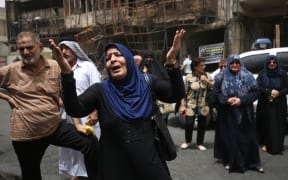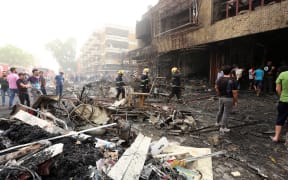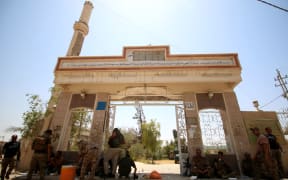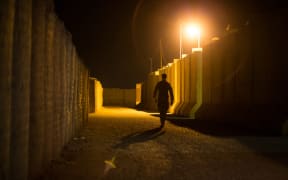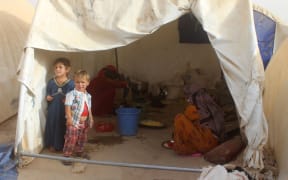The huge truck bombing which killed 125 people in Iraq on the weekend was about about revenge and an attempt by Islamic State to drive a wedge between Sunni and Shia population, analysts says.
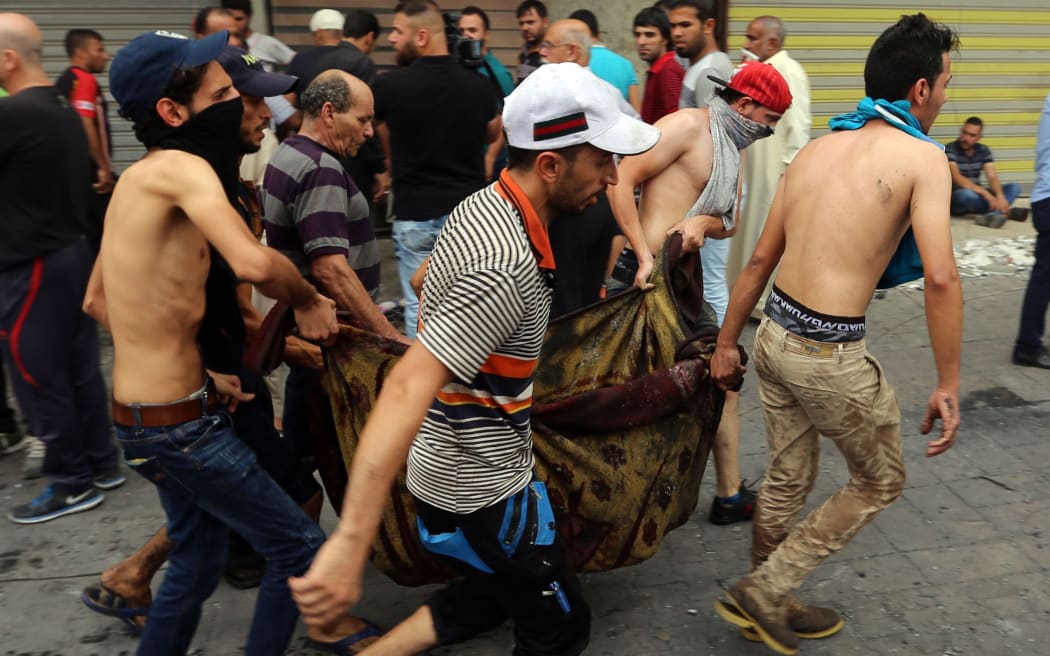
Iraqis remove a body from the site of the bombing claimed by the Islamic State. Photo: AFP
The blast is the deadliest in Iraq since 2007, and has injured nearly 200 people, destroyed shops and buildings and caused a huge fire in the mainly Shia area of Karrada in downtown Baghdad.
There has also been a second blast in a market in al-Shaab, a Shia area north of the capital, which has killed another five people.
Islamic State (IS) which followd its own extreme version of Sunni Islam, has claimed responsibility for the blasts as well as a number of others this year, including the attack on Istanbul's Ataturk airport which killed 44 people, and another at an airport in Belgium which killed 32.
Iraqi Prime Minister Haider al-Abadi, who is a Shia Muslim, attempted to visit the scene in Karrada, but an angry crowd surrounded his convoy, pelting it with objects and calling him "thief" and "dog".
Military analyst and retired American colonel Cedric Leighton told the BBC Islamic State was aiming to destabilise Iraq, and were seeking revenge for recent strategic losses in the country.
"You notice the reaction already from the population in the Shi'ite neighbourhoods that were most affected by this blast.
"The fact that they reacted so vociferously against the Prime Minister Haider al-Abadi shows that the ISIS attacks are having some effect in actually driving a wedge between the Iraqi government and the... Shi'ite population.
"There was already a wedge there, it is fairly easy for them to exploit this."
He said recent recapture of the city of Fallujah from IS by the Iraq military has put the squeeze on them, both operationally and financially.
And BBC Middle East editor Jeremy Bowen said the attacks were a clear message from IS that even if they were defeated on the battlefield, they could still hit back where it really hurts - killing civilians in the Iraqi capital, and around the world.
The loss of Fallujah, a town less than an hour's drive from Baghdad, is a serious defeat for the group, and the recent spate of attacks were to show their supporters - and their enemies - that they are not beaten, he said.
And it is only realistic to fear that there will be more attacks like this, as IS comes under more military pressure, Mr Bowen said.
-BBC / RNZ
